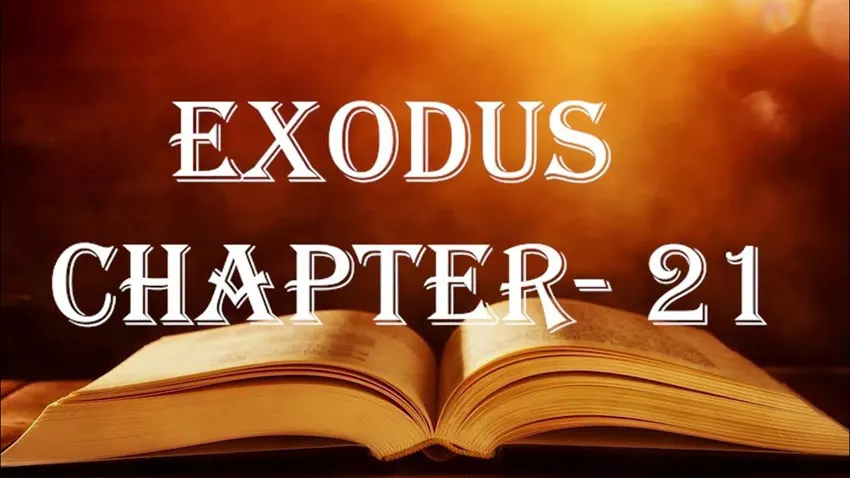Exodus Chapter 21 Summary
Exodus 21 outlines laws given to the Israelites by God, focusing on social justice and moral conduct. The chapter begins with regulations concerning the treatment of Hebrew slaves, emphasizing their fair treatment and the requirement to set them free after six years of service. It also addresses various issues, such as the punishment for personal injury, including guidelines for restitution when a person is harmed. Laws regarding property damage, theft, and responsibility for injuries caused by animals are also presented. The chapter highlights God’s concern for justice, fairness, and the protection of individual rights within the community, laying a foundation for ethical living in Israel.
Bible Exodus Chapter 21
Welcome to read Exodus Chapter 21. Here is the list of Exodus Chapter 21:
What Does Exodus Chapter 21 Teach Us?
Exodus chapter 21 contains a series of laws given by God to the Israelites, focusing on justice, morality, and the treatment of others within the community. These laws, often referred to as the “Covenant Code,” follow the Ten Commandments and provide further guidance on how God’s people should live in harmony with one another. Here are key lessons we can learn from this chapter:
1. The Importance of Justice and Fairness
Exodus 21 begins with laws concerning the treatment of Hebrew slaves. While slavery is a sensitive and complex issue, these laws reveal God’s concern for justice and fairness. For example, Hebrew slaves are to serve for six years and are to be released in the seventh year (Exodus 21:2). This teaches us that God cares about the dignity and freedom of individuals, even within systems of servitude. It calls us to value justice and fairness in all aspects of our lives, ensuring that people are treated with respect and honor.
2. The Value of Human Life
Several laws in Exodus 21 emphasize the sanctity of human life. In Exodus 21:12, it says, “Anyone who strikes a person with a fatal blow is to be put to death.” The chapter also addresses laws regarding accidental injury and compensation for harm caused to others (Exodus 21:18-27). These laws show us that God places a high value on human life, calling for appropriate consequences when life is taken or harmed. They remind us to treat each person with the utmost care and to take responsibility for our actions, ensuring we do not harm others.
3. The Duty of Personal Responsibility
Exodus 21 outlines various scenarios where individuals are responsible for the well-being of others. For instance, if someone’s ox causes harm to another person, the owner is held accountable (Exodus 21:28-36). This teaches us personal responsibility not only for our own actions but also for the things in our care. Whether it’s our property, our children, or our relationships, we are responsible for ensuring that they do not harm others. God calls us to be diligent stewards of everything He entrusts to us.
4. The Protection of Vulnerable Groups
Exodus 21 includes specific protections for vulnerable individuals, such as women and children. For example, in the case of a Hebrew slave woman (Exodus 21:7-11), the law ensures that she is treated with dignity and fairness, with provisions for her welfare. These laws highlight God’s heart for protecting the vulnerable, showing that He values the dignity and rights of all people, particularly those who may be at risk of exploitation or harm. As followers of Christ, we are called to care for the vulnerable in our society, ensuring they are treated with respect and justice.
5. The Principle of Restitution and Reparation
Another important principle in Exodus 21 is the concept of restitution. If a person causes harm to another, they are required to make reparations or compensation (Exodus 21:33-36). For example, if an ox causes harm to someone or another animal, the owner must compensate the victim. This teaches us the importance of making things right when we have wronged others. The principle of restitution points to God’s desire for justice and reconciliation, encouraging us to take responsibility for our actions and work toward restoring relationships when damage has been done.
Related topics:


